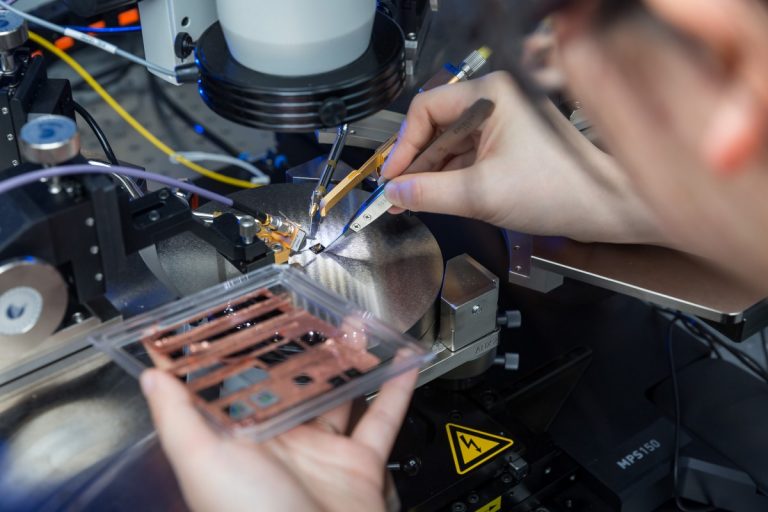
“Staff members are very eager to get involved and help where needed. I have found this to be a very enjoyable year and I am very glad that I chose to study this MSc.” – Simon Shelford, Cardiff University MSc Student, 2015/16
Providing high-quality, innovative education since 1883, Cardiff University is a recognised higher education powerhouse in Wales, the UK and the world. With a population of more than 7,000 overseas students from more than 100 countries worldwide, Cardiff represents a truly international environment and one that both attracts and produces global talents.
Cardiff University students benefit from the institution’s research-rich setting, with lecturers, scholars and first-class researchers working together to extend the frontiers of knowledge. Staff are driven by creativity and curiosity, conducting pioneering research as leaders of their respective fields, all the while upholding a stimulating learning environment where students can achieve their best.
But it’s not just in education that Cardiff University is truly able to excel, with the quality of its research activities resulting in a meteoric rise in the Research Excellence Framework (REF), landing it among the UK’s top five universities in terms of research impact. The University’s Institute for Compound Semiconductors (ICS) is one of its most exciting developments, standing as a leader in compound semiconductors not just in the UK, but in the entire Europe region.
Institute for Compound Semiconductors – Helping researchers and industry work alongside each other…

Image courtesy of Cardiff University
As the driving force behind the evolving technologies we rely heavily on today, compound semiconductors are integral to our contemporary way of life. From our smartphones, to our tablets, to our TomToms and beyond, Cardiff University’s unique and cutting-edge institute aims to serve some of society’s most complex needs.
“Building on existing strengths in optoelectronics, semiconductor devices and materials,” says Professor Diana Huffaker, Director of the ICS, “the institute will explore novel growth methods and material combinations which industry cannot necessarily accommodate,” she explains.
Here, powerful research is pursued to a point where it can then be introduced to the production environment quickly and efficiently, with the ICS constructing and testing innovative emerging technologies in industrially-relevant environments.
As a leader in the science, teaching and research behind compound semiconductor developments, Cardiff University also provides a number of master programmes to give students a solid foundation in this specialised and lucrative field.
MSc in Compound Semiconductor Physics
This course has been specifically designed to deliver comprehensive training and practice-led experience in compound semiconductor theory, fabrication and applications, and integration with silicon technology. Delivered in partnership with the School of Physics and Astronomy and the ICS, students have direct and unparalleled access to some of the most technical facilities in the UK, making the University itself a verified hub for research, development and innovation in compound semiconductor technology.
“Our flexible curriculum contains a robust set of required modules and a number of cutting-edge elective modules,” the institution notes, “…and is designed to incorporate the most effective teaching and learning techniques.”

Image courtesy of Cardiff University
Students undertake an invaluable three-month summer project with either the School of Physics and Astronomy or the ICS, or even a real-world placement with one of Cardiff’s respected industry partners.
“We have strong, long-established industrial links with companies such as IQE and are therefore in a unique position to be able to offer a portfolio of theoretical, practical, fabrication and applications-centred projects in both academic and industrial placement environments,” the institution notes, highlighting how it’s the only Russell Group university to offer such opportunities in this particular discipline.
This degree can lead to a rewarding career in any of the following fields:
- Technical, research, development and engineering positions in industrial compound semiconductors, silicon semiconductors and semiconductor photonics;
- Theoretical, experimental and instrumentational doctoral research;
- Numerate, technical, research, development and engineering positions in related scientific fields;
- Physics, mathematics and general science education.
MSc in Compound Semiconductor Electronics
This programme is offered in collaboration with the School of Engineering and the ICS, with contributions from the School of Physics and Astronomy. Its cross-disciplinary nature is ideal in terms of enhancing engineering expertise and heightening graduate rates of employability, providing students with the skills and knowledge to forge success in any field relating to Compound Semiconductor Electronics.
Much like the Compound Semiconductor Physics provision, this course also provides a three-month summer project or work experience opportunity, with renowned industry partners such as National Instruments and Mesuro, giving students the chance to hone their skills in either an academic or industrial environment.
“The experience of our staff and our reputation, as well as our position at the forefront of semiconductor technology, means we have an unrivalled combination of expert researchers, cutting-edge facilities and industry contacts,” the university notes. “On completion of this course, students will have a sophisticated knowledge of the field, as well as a range of valuable skills.”
This degree can lead to a rewarding career in any of the following fields:
- Technical, research, development and engineering positions in the compound semiconductor industry, silicon semiconductors or advanced communication industry;
- It also instils the knowledge and expertise needed to succeed in further study, or any professional position, in more technical science fields.

Image courtesy of Cardiff University
Cardiff University – Pioneering the field of Compound Semiconductor Technology…
“We have a thriving innovation culture and connect industry, business, and government with our academics, nurturing student entrepreneurship and championing grass-roots business development,” the institution notes.
Think you’ve got what it takes to succeed?
Follow Cardiff University on Facebook, Twitter, Instagram and YouTube







